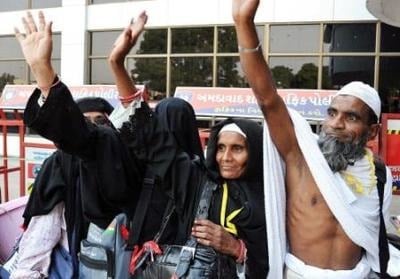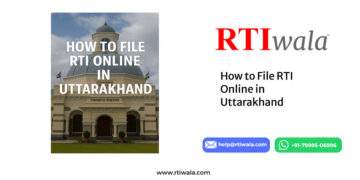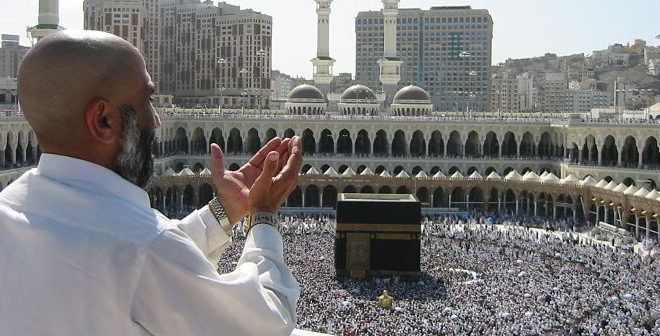RTIwala Explains New Haj Policy: Abolishing subsidy for Haj pilgrims and allowing women above 45 to travel in a group of at least four without a male member, are some of the key highlights of a proposed New Haj Policy. The policy is drafted by a committee appointed by the Centre. The proposed New Haj Policy 2018-22 by the panel is headed by former secretary Afzal Amanullah. The policy also recommends bringing down the number of Embarkation Points (EPs) from which pilgrims can take flights to Saudi Arabia from the present 21 to 09.
New Haj Policy: What Are The New Reforms?
ALSO READ: DarkNet: Data Breach hits 6000 Indian Organizations
The draft was submitted to Union Minority Affairs Minister Mukhtar Abbas Naqvi. Mr. Naqvi said the next Haj pilgrimage will be in line with the new policy, which he described as “better, transparent and one ensuring the safety of pilgrims“. The policy has been drafted in light of a 2012 Supreme Court order asking the Centre to abolish the Haj subsidy gradually by 2022.

Till now, women pilgrims could not travel without a male Mehram. The term Mehram refers to a male a woman cannot marry at any time in her life (i.e. father, brother or son etc). Women aged below 45, however, will have to be accompanied by male Mehrams, according to the policy. It proposes to increase the quota for Mehrams from 200 to 500.
[amazon_link asins=’0385523947,0099564327,1472942248,8171510817′ template=’ProductCarousel’ store=’wwwrtiwalain-21′ marketplace=’IN’ link_id=’34785842-ad15-11e7-ad37-01c3db40dd85′]
The cut in funds meant for the subsidy will be used for educational empowerment and welfare of Muslims. The policy suggests sending pilgrims by ship, relatively less expensive than flights. The policy says the Saudi government will be consulted regarding Haj travel by ship and thereafter floating an EOI (expression of interest) to gauge the market for such travel.
The New Haj Policy: Where Exactly Do Our Concerns Lie?

The committee also suggested formally ascertaining willingness of Saudi Arabia to the proposal of transportation of pilgrims by ship for the pilgrimage. Also, it said, the security concerns that are present, particularly regarding Somalian piracy and instability in Yemen and adjacent areas need to be considered in.
ALSO READ: Rani Padmavati: The Saga of Love, Hate, Betrayal, and Death
According to the policy, the nine EPs will be Delhi, Lucknow, Kolkata, Ahmedabad, Mumbai, Chennai, Hyderabad, Bengaluru and Cochin. It also proposes to build suitable Haj houses at these EPs “to which states and districts will be tagged properly”.
The draft policy also recommended that the Haj Committee of India be exempted from income tax, goods, and services tax (GST) and other local taxes. The air charter services provided for the benefit of pilgrims too should be exempted from service tax/GST.
[amazon_link asins=’0316201065,1472942248,0385523947,0099564327′ template=’ProductCarousel’ store=’wwwrtiwalain-21′ marketplace=’IN’ link_id=’8d125aa9-ad18-11e7-beb4-217f8c76262a’]
The proposed policy aims at rationalizing distribution of the Haj quota between the Haj Committee of India and private tour operators in the ratio of 70:30 for the next five years. It also stresses on breaking the cartel of contractors with a transparent bidding process. India has an annual Haj quota of 1.70 lakh devotees. The policy also proposes to ensure the stay of all Indian Haj pilgrims in Saudi Arabia within Mina. The report will be examined in the ministry and shared with all concerned for implementation of the accepted recommendations from Haj 2018 onwards.
(Inputs by Gehna Kundra)




















































